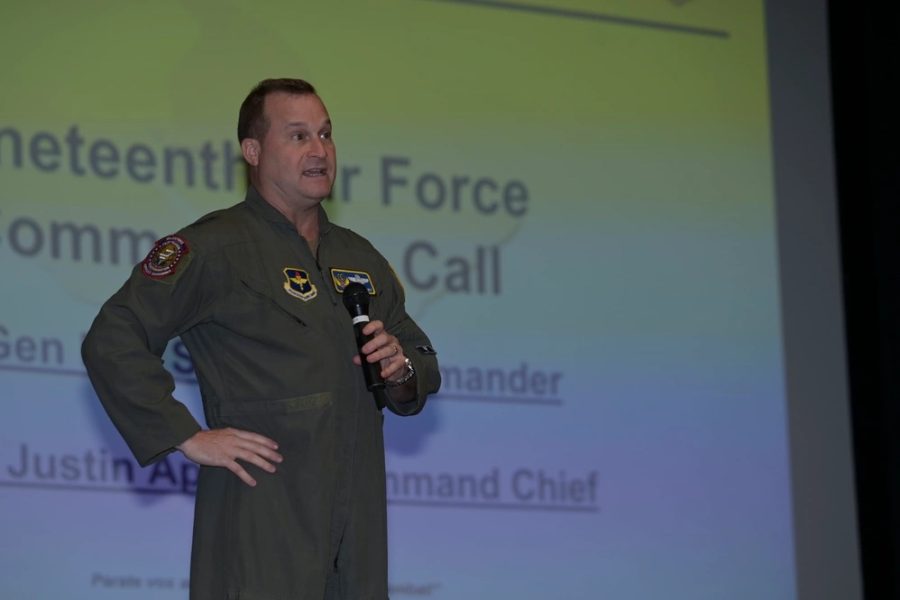The former head of Air Force pilot training faces charges of alleged sexual assault and drinking alcohol within 12 hours of controlling an aircraft. An Article 32 preliminary hearing is set for Oct. 24 at Joint Base San Antonio-Randolph, Texas.
Maj. Gen. Phillip Stewart was relieved of command of 19th Air Force on May 9 due to “loss of confidences in his ability to lead” by Lt. Gen. Brian Robinson, head of Air Education and Training Command (AETC). 19th Air Force is responsible for air crew training for some 30,000 students annually.
AETC said in an Oct. 11 release that Stewart is currently working in a limited capacity at an alternate duty location at Joint Base San Antonio-Randolph.
At the Article 32 hearing, similar to a civilian grand jury evidentiary proceeding, the presiding officer will review the evidence to determine if there is enough cause to continue to a court-martial.
Stewart faces four charges and multiple specifications, according to the charge sheet provided by AETC.
Among them are:
- Two specifications of violating Article 92 of the Uniform Code of Military Justice, failing to obey a lawful order or regulation, first for allegedly failing “to refrain from pursuing an unprofessional relationship” and second for allegedly controlling an aircraft within 12 hours after consuming alcohol. The first specification allegedly dates to March 6 and May 9, while the second allegedly dates to on or about April 14 at or near Altus Air Force Base, Okla.
- Two specifications of violating Article 120 of the UCMJ, which covers rape and sexual assault, for alleged nonconsensual sexual contact, dated on or about April 13 and 14 at Altus.
- One specification of violating Article 133 of the UCMJ, conduct unbecoming an officer, at or near Denver, Colorado, on or about March 6 and March 8, where it alleges that Stewart, “while on official travel, wrongfully invite [redacted] to spend the night alone with him in his private hotel room[.]”
- And one specification of violating UCMJ Article 134, which refers to “all disorders and neglects to the prejudice of good order and discipline in the armed forces, of a nature to bring discredit upon the armed forces,” for allegedly engaging “in extramarital conduct” on or about April 13 and 14 at or near Altus.
The charges were preferred to the Article 32 hearing on Sept. 21 by Lt. Gen. Andrea Tullos, head of Air University.
Only one Air Force general officer has ever faced court-martial. In April 2022, Maj. Gen. William Cooley, former head of the Air Force Research Laboratory, was tried and convicted in a military trial of abusive sexual contact for forcibly kissing his sister-in-law in 2018. Cooley’s sentence was to be reprimanded and forced to forfeit $10,910 a month in pay for five months. He was demoted to the rank of colonel upon retiring June 1.
Before Cooley, Maj. Gen. Thomas Fiscus, once the service’s top lawyer, was demoted to colonel and directed to retire in 2005 after an investigation found he had engaged in extramarital relationships with 13 women, some of whom were subordinates. Fiscus, who also received an official reprimand and forfeited some pay, was dealt with administratively, however, and not court-martialed. The following year, in 2006, Brig. Gen. Richard Hassan was demoted to colonel, also by means of nonjudicial punishment, after he engaged in “an unprofessional relationship” and acted in a “sexually harassing” manner with subordinates.
Stewart remains innocent unless proven guilty, AETC’s statement noted on Oct. 11. “Airmen are afforded the right to due process … in accordance with the Uniform Code of Military Justice.”
